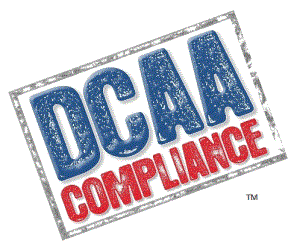DCAA’s job is to collect enough evidence to form an opinion on the adequacy of your accounting system or incurred costs. DCAA evaluates the evidence in relationship to statute, regulation, GAAP, reasonableness, or the contractor’s failure to provide credible evidence to allow for an evaluation.
The FAR mentions burden of proof in four areas: reprisals, statistical sampling, dairy products, and reasonableness. The first three are fairly esoteric while the fourth is not:
31.201-3 Determining reasonableness.
(a) A cost is reasonable if, in its nature and amount, it does not exceed that which would be incurred by a prudent person in the conduct of competitive business. Reasonableness of specific costs must be examined with particular care in connection with firms or their separate divisions that may not be subject to effective competitive restraints. No presumption of reasonableness shall be attached to the incurrence of costs by a contractor. If an initial review of the facts results in a challenge of a specific cost by the contracting officer or the contracting officer’s representative, the burden of proof shall be upon the contractor to establish that such cost is reasonable.
(b) What is reasonable depends upon a variety of considerations and circumstances, including—
(1) Whether it is the type of cost generally recognized as ordinary and necessary for the conduct of the contractor’s business or the contract performance;
(2) Generally accepted sound business practices, arm’s length bargaining, and Federal and State laws and regulations;
(3) The contractor’s responsibilities to the Government, other customers, the owners of the business, employees, and the public at large; and
(4) Any significant deviations from the contractor’s established practice
(emphasis added)
Note, the contractor assumes the burden of proof only after the government (ACO or Auditor) challenge a specific cost.
The burden of proof rests with DCAA until they begin to believe something is unreasonable and then the burden of proof shifts to the contractor. Before this, DCAA can only reject a contractor position because it specifically defies statute, regulation, GAAP, is unreasonable, or the contractor fails to provide credible evidence.
I am not an attorney and I am sure a few DCAA auditors will take umbrage at this position. They are free to construct arguments that place the burden of proof on the contractor from conception. They should base these arguments on statute, regulation, Yellow Book, or GAAP. I look forward to the discussion.
An expanded discussion on this topic can be found in Surviving A DCAA Audit available on Amazon.

1 thought on “Burden of Proof”
Comments are closed.